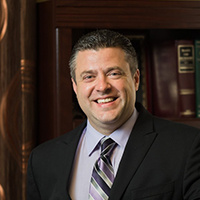Whitehouse Criminal Lawyer, Texas
Sponsored Law Firm
-
 x
x

Click For More Info:
-
Stephanie Alvarado Attorney at Law
100 N Central Expy Suite 805 Richardson, TX 75080» view mapCriminal Defense Law Fighting Against Unjust Prosecution
Attorney Stephanie Alvarado is there for her clients when help is needed right away. Helping people charged with crimes in Texas for over 20 years.
800-988-5471
Jeremy Daniel Coe
✓ VERIFIEDPersonal Injury, Immigration, Criminal, Divorce & Family Law
Jeremy Coe is a fourth-generation East Texan. He graduated from Winnsboro High School in 1991, where he was selected as “Best All-Around Boy.” A... (more)
Richard B. Patteson
✓ VERIFIEDEstate Planning, Elder Law, Family Law, Criminal, Estate
Put 30 years of experience to work for you.
A native of Jonesboro, Arkansas, Richard completed high school at The Hill School, a preparatory school in Pottstown, Pennsylvania, then graduated cum... (more)
Charles G. Morton
Commercial Real Estate, Wills, Family Law, Criminal
Status: In Good Standing Licensed: 57 Years
James E. Williams
Juvenile Law, Estate Planning, Natural Resources, Family Law, Commercial Real Estate
Status: In Good Standing Licensed: 37 Years
Dale Rex Kirby
Social Security, Wills, Family Law, Criminal
Status: In Good Standing Licensed: 59 Years
John Wendel Greenslade
Family Law, Criminal, Insurance, Personal Injury
Status: In Good Standing Licensed: 14 Years
Jarrod Donald Heath
Juvenile Law, Oil & Gas, Family Law, Credit & Debt
Status: In Good Standing Licensed: 13 Years
 Stephanie Alvarado Richardson, TX
Stephanie Alvarado Richardson, TX Practice AreasExpertise
Practice AreasExpertise



